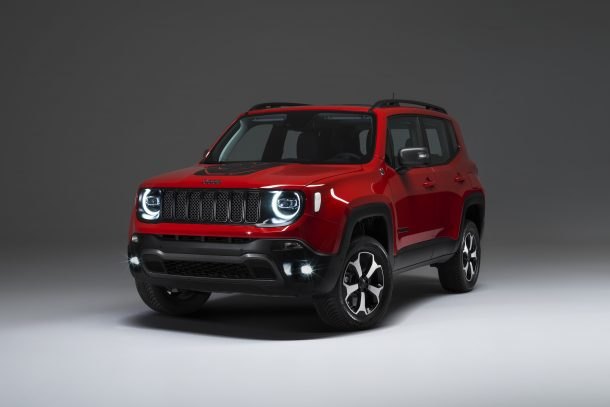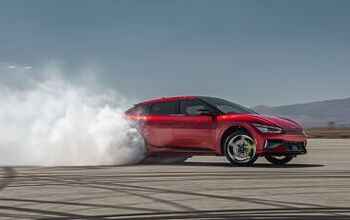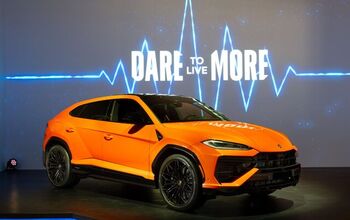Fiat Chrysler Gains Partners to Help Ease Europeans Into Greener Cars

Fiat Chrysler is no stranger to paying the piper when it comes to its less-than-stellar fleetwide emissions, with steep fines and pricey regularly credit deals keeping the automaker’s accountants busy on both sides of the Atlantic.
Some sort of relief is on the way in the form of a $10 billion electrification plan, the results of which will see 17 electrified (electric, plug-in hybrid) models enter the fray by 2022. That’s the intent, anyway. To give the looming crop of green Fiats and Jeeps a better chance of success, FCA has partnered with a pair of European utilities — providing customers with a way of fueling their vehicles.
According to the automaker, the pact with Enel X and ENGIE will mean “FCA dealers will be able to offer innovative charging solutions and services to retail and business customers,” adding, “This initiative also includes research and testing of new technologies to reduce the total cost of ownership of electrified vehicles.”
The partnership with Enel X covers the Italian, Spanish and Portuguese markets, while ENGIE will collaborate with FCA in 14 other European markets. With these companies on board, FCA believes it can, um, juice sales of its future fleet and reduce its dependency on paying other companies for their environmental credits.
“In addition to home charging points, customers will also be offered cost-efficient and convenient access to public charging solutions,” the automaker stated. “FCA and its partners will collaborate on the development of apps that will enable customers to locate public charging points, as well as book and pay for charging services via their vehicle’s integrated connectivity capability.”
While a full lineup of new EVs and PHEVs is on the way, the first green models to roll out of FCA’s five-year product plan are the revamped Fiat 500 EV and the plug-in Jeep Renegade and Compass. The two Jeeps are said to offer up to 31 miles of gas-free driving on the WLTP test cycle.
As revealed earlier this year, FCA expects to spend $2.7 billion between 2018 and 2022 as a result of its excess fleet emissions. Some $2 billion of that amount will go to Tesla, which does a roaring business with its ample supply of credits. FCA isn’t the only customer.
[Image: Fiat Chrysler Automobiles]

More by Steph Willems
Latest Car Reviews
Read moreLatest Product Reviews
Read moreRecent Comments
- Theflyersfan After looking it over, Honda, I want royalties for this one: The Honda Yawn.
- V8fairy Not scared, but I would be reluctant to put my trust in it. The technology is just not quite there yet
- V8fairy Headlights that switch on/off with the ignition - similar to the requirement that Sweden has- lights must run any time the car is on.Definitely knobs and buttons, touchscreens should only be for navigation and phone mirroring and configuration of non essential items like stereo balance/ fade etc>Bagpipes for following too close.A following distance warning system - I'd be happy to see made mandatory. And bagpipes would be a good choice for this, so hard to put up with!ABS probably should be a mandatory requirementI personally would like to have blind spot monitoring, although should absolutely NOT be mandatory. Is there a blind spot monitoring kit that could be rerofitted to a 1980 Cadillac?
- IBx1 A manual transmission
- Bd2 All these inane posts (often referencing Hyundai, Kia) the past week are by "Anal" who has been using my handle, so just ignore them...

































Comments
Join the conversation
"Compliance cars." No more accurate term has been created. The vast majority of consumers do not want these, so they are going to be shoved down our throats by any means necessary. Sounds like a repeat of the plan for Euro diesel. How did that work out? Choke on it, Germany. Regulations, subsidies and rising costs for the non-compliant. Sounds familiar. Thanks statists. Contemporary ICE cars are affordable, reliable, easily refueled, clean-burning, and efficient. ICE car lifecycles are more energy efficient and easier on the environment than battery-powered car lifecycles. It is like when the incandescent bulb was banned and the compact florescent spread deadly mercury throughout landfills. Nice job, green weenies. Fuel is more abundant than it has ever been, and private industry keeps finding more and more and more. North America is awash in oil and natural gas. When that starts to run out, if it ever does, we have unlimited nuclear power, for which we already have the technology. Thanks, capitalism. We can switch to electric cars when it makes economic sense, without mandates, subsidies, penalties, communism, etc. Modern ICE vehicles do not cause the air pollution experienced in cities in China. Corruption causes that pollution. The Chinese laws regarding emissions for power plants and vehicles are ignored, due to lack of competition for political power. Thanks, leftists. There is no need for people to switch. Consumers know this. Hence, coercion couched as choice. "Sure, you can make the unapproved choice, but..." Electric cars are not just another marketplace choice, they are symbol of government meddling. Thanks, enviro-leftists; I never hated electric cars before you ruined them for me.
The FCA magic words: "future fleet". Where FCA will get these electric vehicles to sell is the problem. This agreement probably has a clause for the utility companies to provide charging for other makes besides FCA's "future fleet".